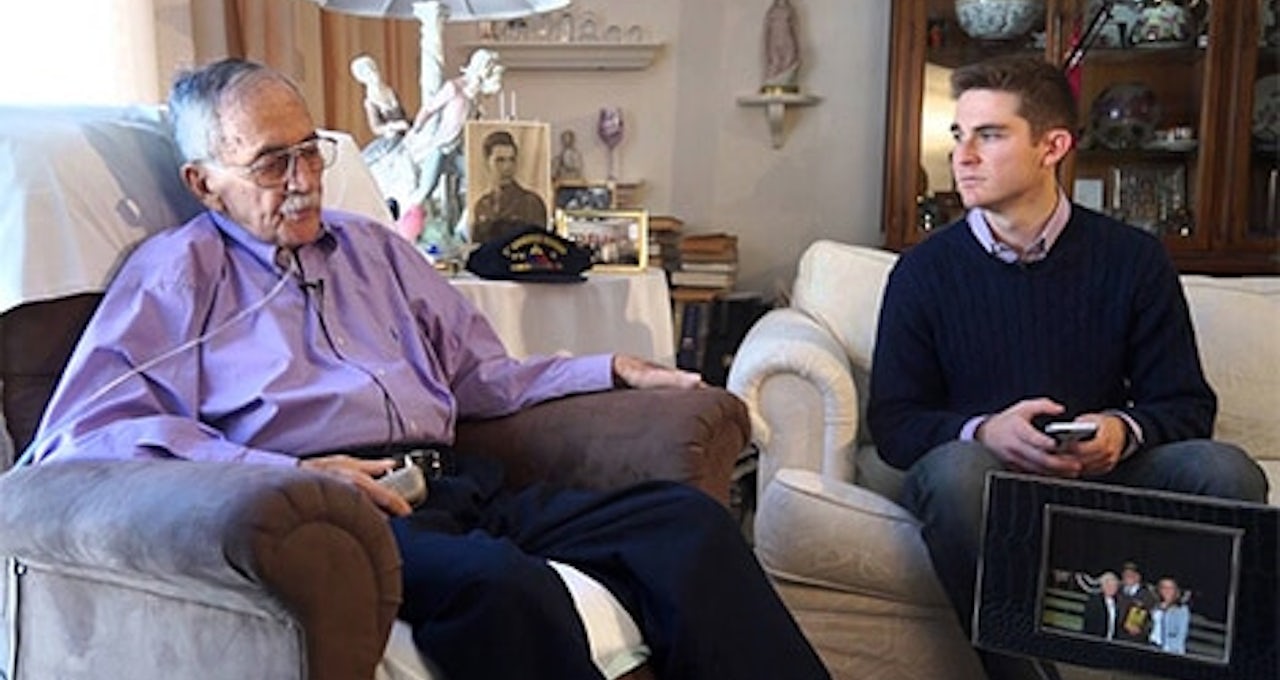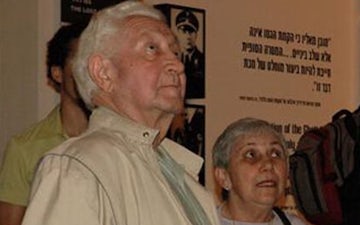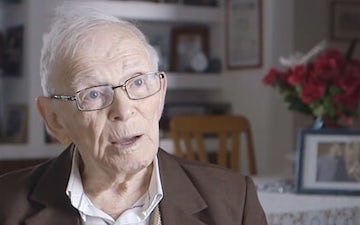George Sherman was born in Brooklyn, NY in 1926, and served as a tank gunner for the 41st Cavalry Squadron of the US Army’s 11th armored division.
After joining the cavalry, Sherman was sent to the town of Malmedy in Belgium, where members of a German SS division had murdered over 80 American prisoners of war, in an event that later became known as the Malmedy Massacre. Sherman’s unit was tasked with digging the frozen American bodies out of the field, so that they could be put in body bags and loaded onto trucks.
Afterwards, the division was sent to Austria. There, Sherman was on the lookout for the Soviet Army as they made their advance westward, when they came across Mauthausen.
“Inside the gates there were just piles of bodies stacked up and mainly people coming out of what turned out to be their barracks, in the worst physical conditions, skeletons, a lot of the things they were wearing were just rags”
According to Sherman, the American soldiers could smell the concentration camp long before they arrived and as they approached they could hear a commotion from a distance. Sherman’s unit drove into the camp and were taken aback by the scenes of barracks, corpses, and the surviving prisoners, many of them Jews.
At first Sherman didn’t know what to think. He had heard from Stars and Stripes (an American military newspaper) about other German concentration camps that had been liberated in the previous weeks and months — the main one being Auschwitz, which had been liberated by the Red Army in January.
On May 6, 1945, the American troops entered Mauthausen while the crematorium ovens there were still hot. Jewish prisoners approached the soldiers, but neither group knew what to say. According to Sherman, he had no words and almost couldn’t believe he was witnessing such atrocities.
Source: Yad Vashem






